I have seldom read a chapter book as emotionally true as Maybe Maybe Marisol Rainey. Our hero is the delightfully cautious and introspective Marisol, a Philippine -American girl living in Louisiana. The two things I appreciated most about this book was the main characters disarming honesty about her many fears, and her steadfast best friend Jada. So many middle grade books address the problem of the mean, snarky, bullying girl. It’s easy to forget that children–even girls–are as capable of kindness as they are of cruelty. I loved Jada’s unquestioning acceptance of Marisol’s many quirks. I loved their imaginative play and the hilarious names they gave to household appliances. And I loved Marisol’s unwavering faith in her friend. I also appreciated the leisurely pace of the story, which meandered from one summer activity to the next while Marisol thoughtfully addressed her fear of climbing the magnolia tree in her back yard. This is a perfect choice for a tender-hearted reader.
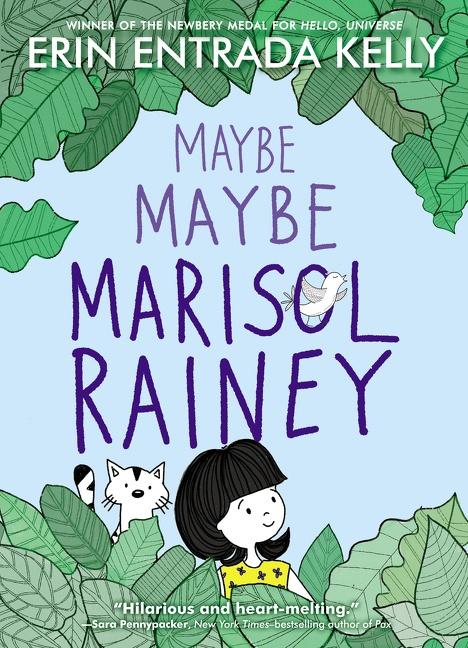

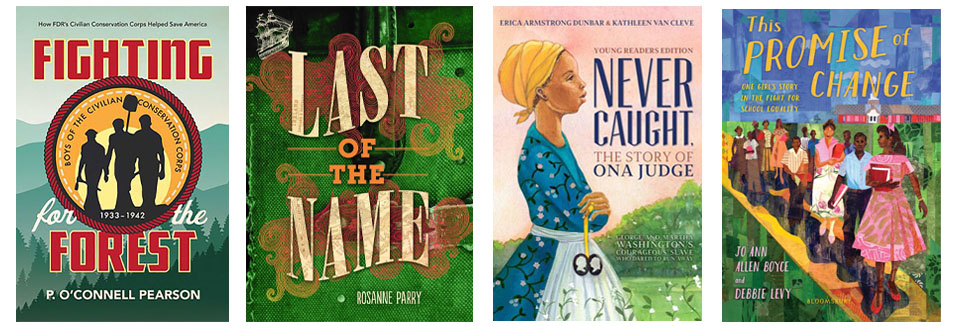
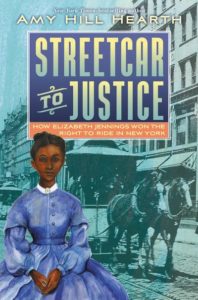
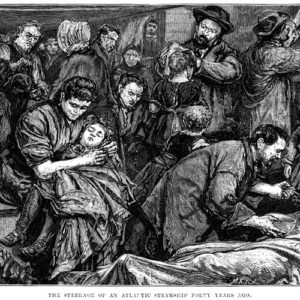
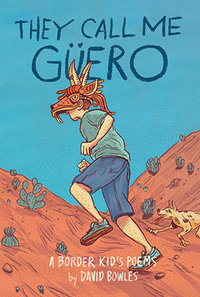 THEY CALL ME GÜERO by David Bowles is a collection of poems which together form a loose narrative about a boy living in South Texas and occupying the physical but also social and emotional space that spans the US-Mexico border. The poems are short and ring clear with emotional and physical details that will strike a chord with any reader. There are many words in Spanish but none that would be a barrier to a reader who knows only English. The glossary in the back is more a courtesy than a necessity. Teachers will be delighted to find many poetic forms and devices used throughout which make it ideal for using in school. I also found it notable in that it doesn’t shy away from the main character’s spiritual practice. A gem from Cinco Puntos Press
THEY CALL ME GÜERO by David Bowles is a collection of poems which together form a loose narrative about a boy living in South Texas and occupying the physical but also social and emotional space that spans the US-Mexico border. The poems are short and ring clear with emotional and physical details that will strike a chord with any reader. There are many words in Spanish but none that would be a barrier to a reader who knows only English. The glossary in the back is more a courtesy than a necessity. Teachers will be delighted to find many poetic forms and devices used throughout which make it ideal for using in school. I also found it notable in that it doesn’t shy away from the main character’s spiritual practice. A gem from Cinco Puntos Press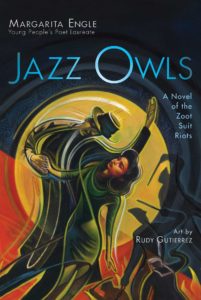 My favorite verse novel in quite a while is JAZZ OWLS: A NOVEL OF THE ZOOT SUIT RIOTS by Young People’s Poet Laureate, Margarita Engle. She takes on an episode in our national history that should be far better known–a racially targeted riot between soon to deploy WWII sailors in Los Angeles and the Hispanic community there. Engle’s spare language and vivid descriptions bring to life a time when the military was still racially segregated, a time when interracial marriage was not legal in California–only 75 years ago. This would be such a great book to discuss in a classroom or book club. The references and afterward make it clear that, as vicious as the racial attacks on Mexican-American’s were, justice was done in the end. The military did integrate and freedom to marry a person of another race did become legal. Still it’s chilling to see how easily the sailors of the 1940s found it to scape goat the Mexican community and how reluctant local law enforcement was to arrest servicemen on the eve of deployment. The art by Rudy Guitierrez strikes just the right tone. This is a gem of a book which I hope will find its way into many a high school history class.
My favorite verse novel in quite a while is JAZZ OWLS: A NOVEL OF THE ZOOT SUIT RIOTS by Young People’s Poet Laureate, Margarita Engle. She takes on an episode in our national history that should be far better known–a racially targeted riot between soon to deploy WWII sailors in Los Angeles and the Hispanic community there. Engle’s spare language and vivid descriptions bring to life a time when the military was still racially segregated, a time when interracial marriage was not legal in California–only 75 years ago. This would be such a great book to discuss in a classroom or book club. The references and afterward make it clear that, as vicious as the racial attacks on Mexican-American’s were, justice was done in the end. The military did integrate and freedom to marry a person of another race did become legal. Still it’s chilling to see how easily the sailors of the 1940s found it to scape goat the Mexican community and how reluctant local law enforcement was to arrest servicemen on the eve of deployment. The art by Rudy Guitierrez strikes just the right tone. This is a gem of a book which I hope will find its way into many a high school history class.